Real Account Of The Great Nigerian Civil War - The Immediate Causes of the Nigerian Civil War
From the 6th of July 1967 to 15th of January 1970, Nigerian experienced a civil war (popularly known all over the world as the "Biafran War"). The war was between the Eastern Region of Nigeria (Igbos) and the rest of the country to counter the act of secession regarded by the Federal Military Government of Nigeria after the Eastern Region declared itself an independent state. The Igbos felt they could no longer relate smoothly with the northern dominated federal government and saw separation as the only way to survive or avoid extinction. The war which lasted for 30 months took the lives of more than one million people. Some died in the battle while others were lost majorly through famine, and hunger. The following reasons are the major causes of the civil war.
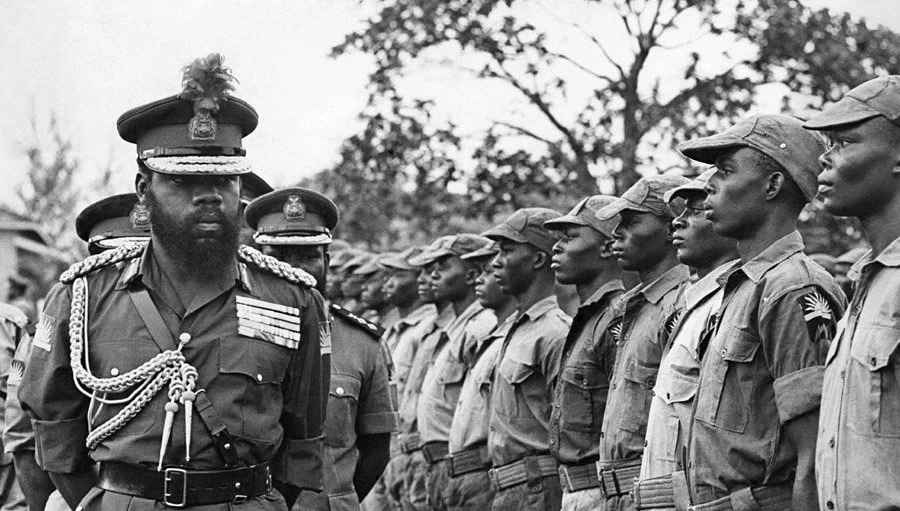
The Existing Causes of the Nigerian Civil War
- The First Military Coup of January 15, 1966: It claims that the explosion of that day could be traced back along the powder trail to the fuse lit at the time of the Western Region election of October 1965. It was seen as an Igbo coup because many Northern leaders like Prime Minister Abubakar Tafawa Balewa, Alahji Ahmadu Bello and so on were killed in the coup while some Igbo leaders were spared, though the aim of the coup was to establish a strong, unified and prosperous nation, free from corruption and internal strife. Major Kaduna Nzeogwu led the coup while Later, General Johnson Aguiyi-Ironsi was installed as the Head of State. This arose a flame of anger among the Northerners who sensed the dominance of the Igbos and were ready to retaliate.
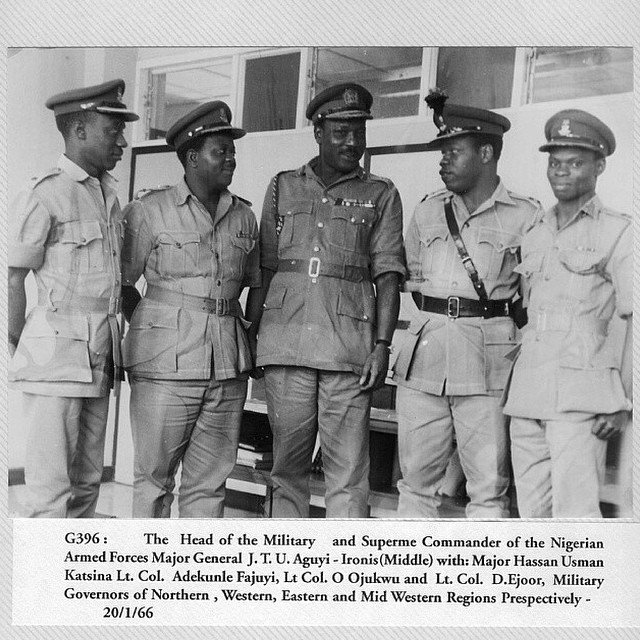
- The second coup in Nigeria: A few months after the first coup, a northerner-led counter coup was staged by the Northern military officers on 29 July 1966 with two points, a revenge on the East, and a break up of the country. The Head of State, Maj. Gen Aguiyi Ironsi and many other senior officers of Eastern origin were killed. After three anxious days of fear, doubts and non-government, Lt. Col. Yakubu Gowon, at the time the most senior officer of Northern origin and then the Chief of Staff, Nigerian Army, emerged as the new Nigerian Head of State.
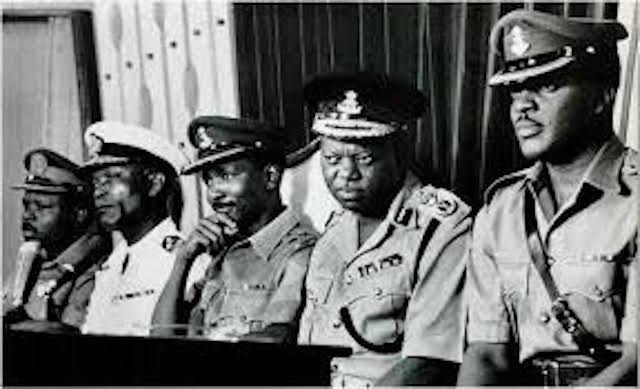
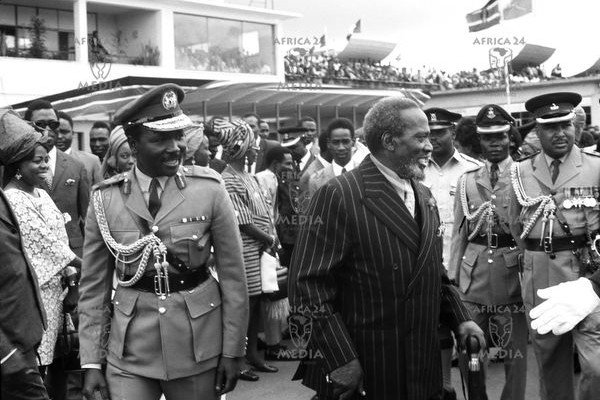
- The massacre of Igbos living in the northern part of Nigeria. The lack of planning and the revengeful intentions of the second coup manifested itself in the chaos, confusion and the scale of unnecessary killings of the Easterners throughout the country. Tension had began and was all over Northern Nigeria where the embers of ethnic discrimination against the Igbos was glowing hard. It was at the peak of this discrimination that the massacre of the Igbos kicked off on 29 September 1966.
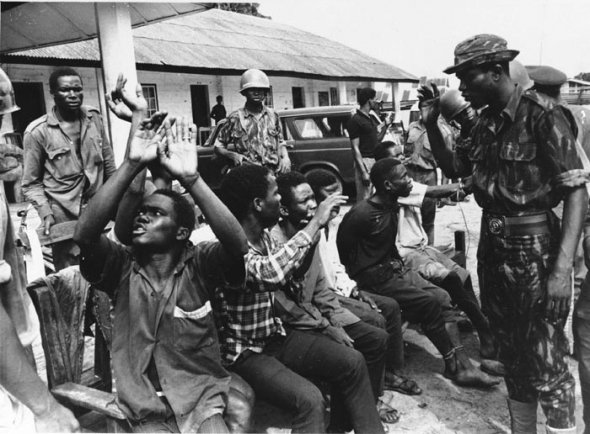
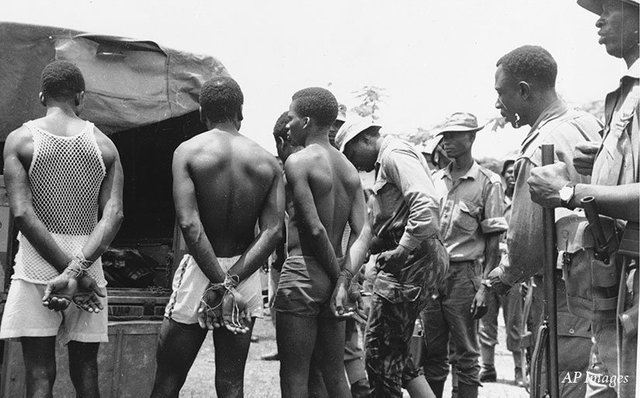
The Head of State Lt. Col. Yakubu Gowon, made a broadcast to the people of the North in September saying; "I receive complaints daily that up till now Easterners living in the North are being killed and molested and their property looted. It appears that it is going beyond reason and is now at a point of recklessness and irresponsibility." In an effort to put a hold on the killings and to safeguard the nation in one form or the other, an emergency conference of the representatives of the regions was called on 9 August 1966 in Lagos. The following recommendations were made in the meeting:
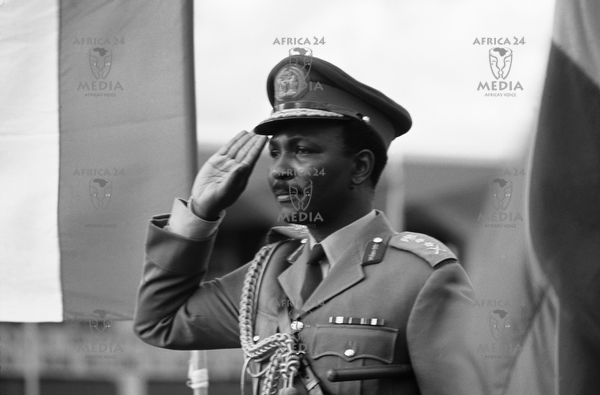
Posting of military personnel to barracks within their respective regions of origin with immediate effect.
Forming of an enlarged body from the meeting committee, in order to recommend in a broad outline the form of political association which the country should adopt in the future
Nullification or modification of provisions in any decree which assumes extreme centralization of the country with immediate effect.
The Supreme Commander should make conditions suitable for a meeting of the Supreme Military Council urgently as a further means of lowering the level of tension.
Only the first recommendation was implemented on 13 August 1966. But none of the other recommendations was fully implemented except nullification of the unification decree. The implementation of the recommendation with regards to the posting of troops to barracks within their region of origin was perpetually pursued by the political leaders of Western Region after the exercise had been completed in the Eastern Region. They were afraid of the so - alled Northern troops authority and probably of the safety of the troops of Western Region origin.
If you like this piece of historical summary, please upvote, resteem and follow @xpency